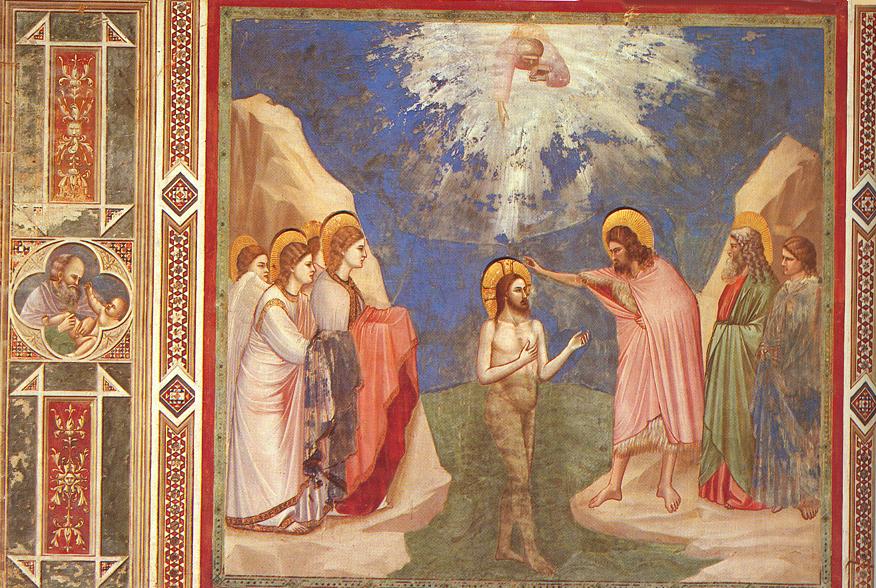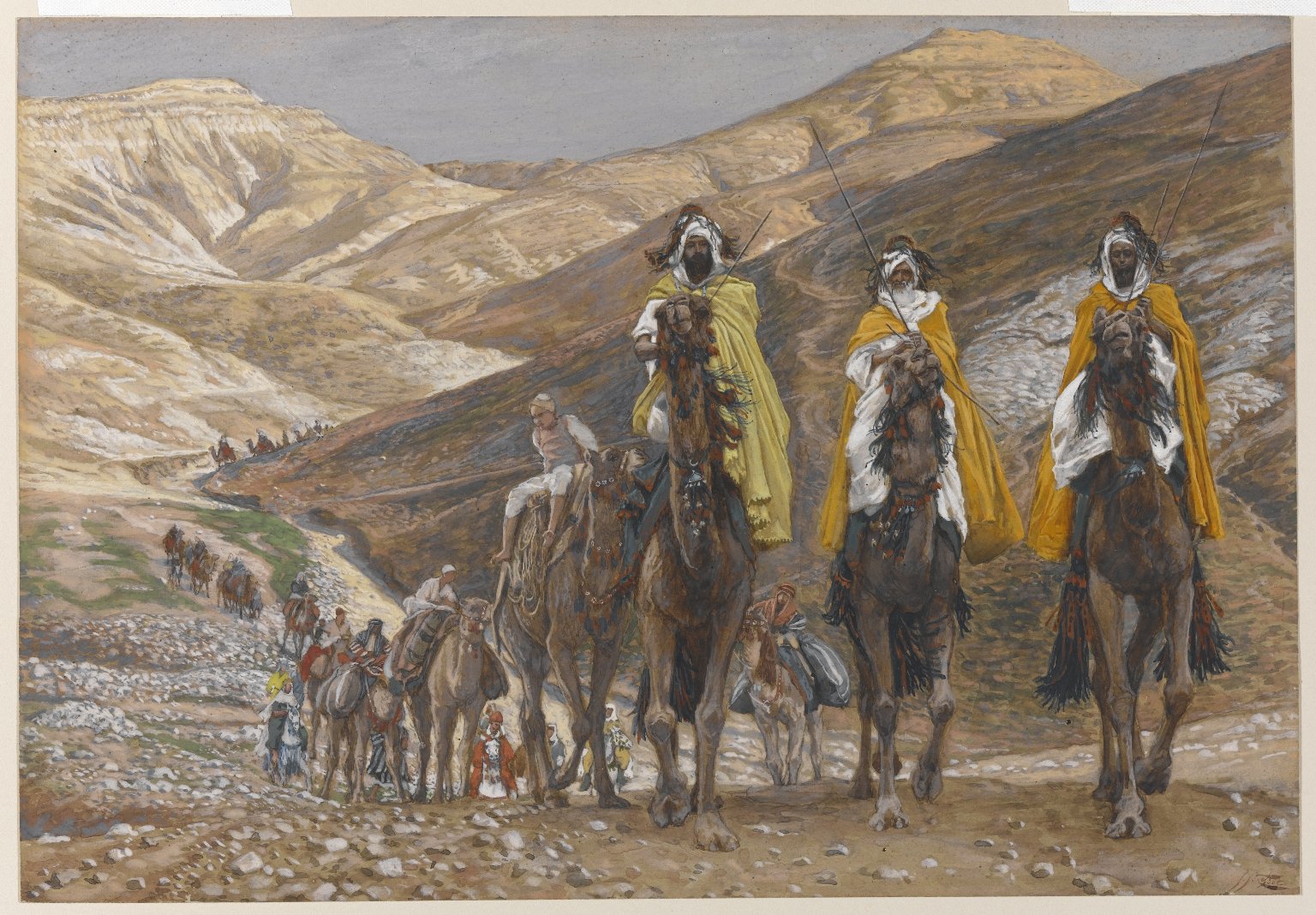Our experience over the last twelve months has shown us how the world we live in is broken and wounded. As people who live in this broken world, we long for wholeness and healing. The global pandemic is terrible and terrifying, and yet it is a symptom of a wider malaise, of sin and selfishness, which characterises our modern existence. We fall short and look to God for forgiveness and healing. The world more than ever, needs to hear Christ’s call to repent and believe, as He states in Mark’s Gospel:
“The time is fulfilled, and the kingdom of God is at hand; repent and believe in the gospel.” (Mk 1:15)
Repent and believe the Good news: turn from sin, and love God and your neighbour. The message is simple and straightforward, and lies at the heart of our Gospel reading this morning. Jesus has been baptised by John. He has called disciples, and now they go to Capernaum where Jesus teaches and heals. Worship in a synagogue involved singing the Psalms, reading from Scripture, and teaching, rather like a sermon. Jesus explains Scripture to the synagogue, and they are amazed: His teaching is fresh and revolutionary, and unlike what they are used to hear coming from their religious leaders.
“for he taught them as one who had authority, and not as the scribes.” (Mk 1:22)
Jesus teaches like someone with authority. He isn’t a scribe or a Pharisee, He hasn’t spent years in theological training. He stands outside traditional religious power structures. Jesus’ teaching has authority not just because it is spoken with conviction, because it is real and embodied in Him, lived out in His life, but because he is God: the Son of God, beloved of the Father (cf. Mk 1:11), filled with the Holy Spirit, proclaiming the Good News of the Kingdom. No sooner has Jesus done this, then there is a practical demonstration of what His teaching looks like in real life:
“And immediately there was in their synagogue a man with an unclean spirit. And he cried out, ‘What have you to do with us, Jesus of Nazareth? Have you come to destroy us? I know who you are—the Holy One of God.’” (Mk 1:23-24)
There is a man who needs healing, understood as possessed by an evil spirit, though nowadays we would probably prefer to describe him as suffering from mental illness. He is not a well man, he wants to be healed. This weak, broken man recognises who and what Jesus is: He is the Holy One of God, the Messiah. The point of the Kingdom which Jesus proclaims, which he explains in his teaching, is that it is a place of healing. Ours is a God who can heal our wounds, who can take broken humanity and restore it in love. This is why Jesus’ teaching and the healing have to go together; they are both part of a larger whole, the coming Kingdom of God. Jesus proclaims our need to love God and each other, and puts it into practice, making the healing power of God’s love a reality in the world.
Jesus’ teaching and healing amaze the synagogue. His words become actions which heal the afflicted man. He has the authority to teach and heal because Jesus is God, and His teaching and healing proclaim in word and deed the reality of the Kingdom of God, there in the synagogue in Capernaum. Jesus is the fulfilment of Moses’ prophecy in our first reading this morning, where he says:
“The Lord your God will raise up for you a prophet like me from among you, from your brothers—it is to him you shall listen” (Deut 18:15)
“And I will put my words in his mouth, and he shall speak to them all that I command him.”(Deut 18:18)
These verses are quoted by St Peter in Acts 3:22 and St Stephen in Acts 7:37 to refer to Jesus, so for nearly two thousand years the Church has had a consistent interpretation of this passage as pointing to, and finding its fulfilment in, Jesus Christ.
The message Jesus proclaims in His teaching is reinforced by His actions. He shows that the Kingdom of God is where humanity can be healed and freed from sin. Christ demonstrates this most fully when He suffers and dies for us on the Cross. From the very beginning, Jesus looks to the Cross, not as a place of torture, of humiliation, nor defeat, but as the place of victory, and healing. It is the supreme demonstration of God’s love for humanity. Through the Cross we learn how much God loves us. This is why God sends His Son to heal our wounds, to restore us, and to give us the hope of Heaven. Confident in His promises we can turn to God and pray for the healing for which we all so desperately long for, and which the world needs We can pray that His Divine nature might transform our human nature, and give us a foretaste of heaven. We pray that our wounds: physical and mental, will be healed, so that we might have life in Him, in this world and the next.
The possessed man asks ‘Have you come to destroy us?’ All that Christ has come to destroy is the power of evil which separates man from God. We know that Jesus has come not to destroy but to restore humanity, so that we may have life and have it to the full. This is the Good News of the Kingdom, which is still a reality here and now. We, in our brokenness, can come to the source of all healing, to the God who loves us and gives himself for us, so that we can be restored by Him. God can take our lives and heal us in His love. So let us come to Him, so that our lives too may be transformed, and let us proclaim to a world, which longs for healing and wholeness, the love of God in Christ. So that all creation may sing the praise of God the Father, God the Son, and God the Holy Spirit, to whom be ascribed, as is most right and just, all might, majesty, glory, dominion and power, now and forever. Amen.



